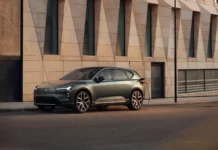
A major legal battle is coming.
On Wednesday, president Donald Trump confirmed he would revoke California’s authority to set more stringent emissions targets than the federal government. Reuters reports, among others, that the announcement will not lead to immediate revisions, but the administration will lay out new standards to roll back Obama-era fuel efficiency requirements.
In a series of tweets, President Trump ended on a point that automakers should seize the opportunity. “…without this alternative to California,” he argues, “you will be out of business.” For their part, none of the automakers have publicly supported the administrations move to revoke California’s waiver to set emissions targets. Instead, the Alliance of Automobile Manufacturers declined to take a position at all. The trade group said its representatives would wait “to get the full picture of how this impacts automakers, our workers and our customers.”
According to the Reuters report, a person briefed on the matter said the administration made this move in direct response to California’s recent actions, including making a deal with automakers on emissions targets moving forward. “Recent actions by the state of California…have confirmed the need for final decision from agencies that the states do not have the authority to set (greenhouse gas) standards or establish (zero emission vehicle) mandates,” a draft document says.
California Governor Gavin Newsom, California Attorney General Xavier Becerra and California Air Resources Board director Mary Nichols all denounced Trump’s statement. All of them said the state would go to court to challenge the administration, once the official decision comes down. “This will be the fight of a lifetime for us,” Nichols said. “We have to win this and I believe we will.”

New fuel efficiency proposal
Barring any legal decisions going forward, California would fall back to federal fuel efficiency requirements. The Trump administration seeks to roll back the Obama-era average of 46.7 miles per gallon by 2025. That standard also set an annual increase of 5 percent as a requirement. Now, the current administration plans to reduce that requirement to 37 miles per gallon by 2026.
The EPA’s current proposal will reportedly increase oil consumption by 500,000 barrels per day by the 2030s. But, it would also reduce automakers’ regulatory costs by $300 billion. While the administration argues its proposal would make cars cheaper for American consumers, Nichols and others argue consumers will spend more fueling up less efficient vehicles. Ultimately, that will negate new vehicle prices, even if they are lower. Not only that, but less efficient vehicles will contribute to worsening air pollution.























